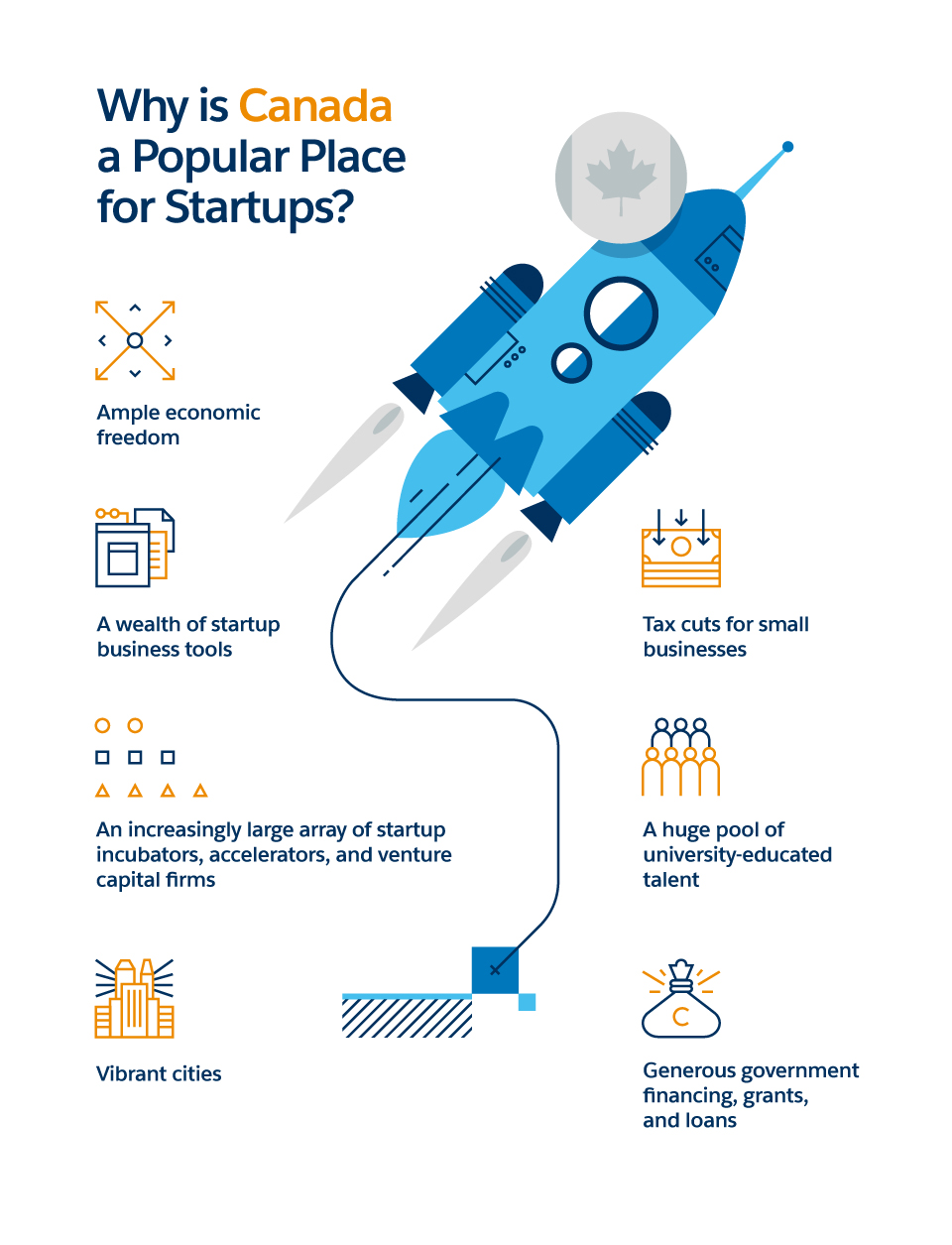What is a SaaS Startup Incubator and How Can it Help Your Business
A SaaS startup incubator is a program designed to support the growth and development of software as a service (SaaS) startups. These incubators provide a comprehensive ecosystem that fosters innovation, entrepreneurship, and success. By joining a SaaS startup incubator, businesses can gain access to valuable resources, mentorship, and networking opportunities that can help them navigate the challenges of launching and scaling a SaaS company.
The benefits of participating in a SaaS startup incubator are numerous. For one, incubators provide a supportive community of like-minded entrepreneurs and industry experts who can offer guidance and advice. Additionally, incubators often have established relationships with investors, partners, and customers, which can help SaaS startups secure funding, partnerships, and revenue. Incubators may also provide access to shared resources, such as office space, technology, and talent, which can help reduce costs and improve efficiency.
Some of the key resources and services offered by SaaS startup incubators include mentorship programs, which pair startups with experienced entrepreneurs and industry experts who can provide guidance and support. Incubators may also offer funding opportunities, such as seed funding, grants, or investments, to help startups get off the ground. Furthermore, incubators often host networking events, workshops, and conferences that bring together startups, investors, and industry experts, providing opportunities for collaboration, learning, and growth.
By leveraging these resources and services, SaaS startups can accelerate their growth, improve their chances of success, and achieve their goals more quickly. Whether you’re just starting out or looking to scale your SaaS business, a startup incubator can provide the support, guidance, and resources you need to succeed.
In the context of SaaS startup incubators, it’s worth noting that these programs can be highly competitive, and the application process can be rigorous. However, for those who are accepted, the benefits can be significant. By understanding what SaaS startup incubators have to offer and how they can support your business, you can make an informed decision about whether an incubator program is right for you.
How to Choose the Best SaaS Startup Incubator for Your Business
With numerous SaaS startup incubators available, selecting the most suitable one for your business can be a daunting task. To make an informed decision, it’s essential to consider several factors that align with your startup’s goals, needs, and stage of development. Here are some key criteria to help you choose the best SaaS startup incubator for your business.
Firstly, consider the incubator’s focus and specialization. Some incubators may focus on specific industries, such as healthcare or finance, while others may have a broader focus on SaaS startups in general. Ensure that the incubator’s focus aligns with your startup’s niche and goals. Additionally, look for incubators that have a strong track record of supporting SaaS startups, with a clear understanding of the unique challenges and opportunities in the SaaS industry.
Location is another critical factor to consider. While some incubators may offer remote programs, others may require startups to be physically present in their location. Consider the benefits of being part of a local startup ecosystem, including access to networking events, partnerships, and talent. However, also weigh the potential drawbacks, such as higher costs of living and competition for resources.
The incubator’s network and connections are also vital. Look for incubators with established relationships with investors, partners, and customers in the SaaS industry. These connections can provide valuable opportunities for funding, partnerships, and revenue growth. Additionally, consider the incubator’s alumni network and success stories, as these can indicate the incubator’s ability to support startups in achieving their goals.
Finally, evaluate the incubator’s program structure and curriculum. Consider the duration of the program, the level of support and resources provided, and the expectations for startup growth and development. Ensure that the program aligns with your startup’s needs and goals, and that you have a clear understanding of what to expect from the incubator.
By carefully evaluating these factors, you can make an informed decision about which SaaS startup incubator is best suited to support your business. Remember to prioritize your startup’s unique needs and goals, and don’t be afraid to ask questions or seek advice from industry experts. With the right incubator support, your SaaS startup can accelerate its growth and achieve success in the competitive SaaS market.
The Role of Mentorship in SaaS Startup Incubators
Mentorship is a vital component of SaaS startup incubators, providing guidance and support to entrepreneurs as they navigate the challenges of building and growing a successful SaaS business. Experienced entrepreneurs and industry experts serve as mentors, offering valuable insights and advice to help startups overcome obstacles and achieve their goals.
The benefits of mentorship in SaaS startup incubators are numerous. For one, mentors can provide valuable guidance on product development, marketing, and sales, helping startups to refine their business model and improve their chances of success. Additionally, mentors can offer introductions to key industry contacts, including investors, partners, and customers, which can help startups to secure funding, partnerships, and revenue.
Successful mentorship programs in SaaS startup incubators often involve a combination of one-on-one mentoring, group workshops, and peer-to-peer support. This approach allows startups to receive personalized guidance and support, while also benefiting from the collective knowledge and experience of the incubator community.
For example, the SaaS startup incubator, Techstars, offers a mentorship program that pairs startups with experienced entrepreneurs and industry experts. The program includes regular one-on-one meetings, group workshops, and peer-to-peer support, providing startups with a comprehensive support system as they navigate the challenges of building and growing a successful SaaS business.
Another example is the SaaS startup incubator, 500 Startups, which offers a mentorship program that includes access to a network of experienced entrepreneurs and industry experts. The program also includes regular workshops and peer-to-peer support, providing startups with a comprehensive support system as they navigate the challenges of building and growing a successful SaaS business.
In addition to providing guidance and support, mentorship programs in SaaS startup incubators can also help to foster a sense of community and collaboration among startups. By providing a supportive and collaborative environment, incubators can help to encourage innovation and entrepreneurship, and provide startups with the resources and support they need to succeed.
Top SaaS Startup Incubators to Consider
When it comes to selecting a SaaS startup incubator, there are several top-notch programs to consider. Here are a few of the most well-known and respected incubators in the industry:
Y Combinator is one of the most prestigious SaaS startup incubators in the world. Founded in 2005, Y Combinator has funded over 2,000 startups, including Airbnb, Dropbox, and Reddit. The incubator’s program includes a 3-month intensive program, followed by a Demo Day where startups can pitch to investors.
500 Startups is another highly respected SaaS startup incubator. Founded in 2010, 500 Startups has invested in over 2,000 startups, including Lyft, Warby Parker, and Udemy. The incubator’s program includes a 4-month intensive program, followed by a Demo Day where startups can pitch to investors.
Techstars is a global SaaS startup incubator with programs in over 15 cities around the world. Founded in 2006, Techstars has invested in over 1,500 startups, including Uber, SendGrid, and FullContact. The incubator’s program includes a 3-month intensive program, followed by a Demo Day where startups can pitch to investors.
Other notable SaaS startup incubators include Seedcamp, which has invested in over 300 startups, including TransferWise and Revolut, and Betaworks, which has invested in over 100 startups, including Giphy and Digg.
When considering a SaaS startup incubator, it’s essential to research the program’s focus, success stories, and notable alumni. Look for incubators that have a strong track record of supporting SaaS startups, and that offer a comprehensive program that includes mentorship, funding, and networking opportunities.
Additionally, consider the incubator’s network and connections in the industry. Look for incubators that have established relationships with investors, partners, and customers in the SaaS industry. These connections can provide valuable opportunities for funding, partnerships, and revenue growth.
What to Expect from a SaaS Startup Incubator Program
A SaaS startup incubator program typically lasts for several months, during which time startups receive a comprehensive support system to help them grow and succeed. Here’s an overview of what to expect from a typical SaaS startup incubator program:
The application process usually begins with an online application, followed by a review of the startup’s business plan, product, and team. Once selected, startups typically participate in a 3-6 month program, which includes a combination of workshops, mentorship sessions, and networking events.
The program curriculum is designed to provide startups with the skills and knowledge they need to succeed in the SaaS industry. This may include topics such as product development, marketing, sales, and fundraising. Startups also receive access to a network of experienced entrepreneurs, investors, and industry experts who can provide guidance and support.
During the program, startups typically receive a small amount of funding, usually in the form of a convertible note or equity investment. This funding is designed to help startups cover their expenses during the program and provide them with the resources they need to grow and succeed.
After the program, startups typically receive post-program support, which may include access to additional funding, mentorship, and networking opportunities. This support is designed to help startups continue to grow and succeed after the program and provide them with the resources they need to achieve their goals.
Some SaaS startup incubators also offer additional resources and support, such as co-working space, access to industry events, and introductions to potential customers and partners. These resources can provide startups with a competitive advantage and help them to succeed in the SaaS industry.
Overall, a SaaS startup incubator program is designed to provide startups with the support and resources they need to succeed in the SaaS industry. By participating in a program, startups can gain access to a network of experienced entrepreneurs, investors, and industry experts, as well as the skills and knowledge they need to grow and succeed.
Success Stories from SaaS Startup Incubators
SaaS startup incubators have a proven track record of helping startups achieve success. Here are a few inspiring stories of SaaS startups that have successfully graduated from incubator programs:
Airtable, a cloud-based database and project management tool, graduated from Y Combinator’s incubator program in 2015. With the help of Y Combinator’s mentorship and funding, Airtable was able to grow its user base and raise additional funding from investors.
Calendly, a scheduling and meeting management tool, graduated from Techstars’ incubator program in 2016. With the help of Techstars’ mentorship and networking opportunities, Calendly was able to grow its user base and raise additional funding from investors.
HubSpot, a marketing and sales software company, graduated from Techstars’ incubator program in 2007. With the help of Techstars’ mentorship and funding, HubSpot was able to grow its user base and raise additional funding from investors.
These success stories demonstrate the value of SaaS startup incubators in helping startups achieve success. By providing mentorship, funding, and networking opportunities, incubators can help startups overcome the challenges of building and growing a successful SaaS business.
In addition to these success stories, many other SaaS startups have also achieved success through incubator programs. For example, companies like Dropbox, Reddit, and Warby Parker have all graduated from incubator programs and gone on to achieve significant success.
These success stories demonstrate the potential of SaaS startup incubators to help startups achieve success. By providing the right support and resources, incubators can help startups overcome the challenges of building and growing a successful SaaS business.
Common Challenges Faced by SaaS Startups in Incubators
While SaaS startup incubators can provide valuable support and resources to help startups grow and succeed, there are also common challenges that startups may face while participating in these programs.
One of the most significant challenges is intense competition. With many startups competing for limited resources and attention, it can be difficult for individual startups to stand out and receive the support they need.
Another challenge is high expectations. Incubators often have high expectations for the startups they support, and startups may feel pressure to meet these expectations and deliver results quickly.
Limited resources are also a common challenge. Incubators typically have limited resources, including funding, mentorship, and networking opportunities. Startups may need to compete with other startups for access to these resources, and may not always receive the support they need.
Additionally, startups may face challenges in terms of scalability. As they grow and succeed, they may need to adapt to new challenges and opportunities, and may require additional support and resources to continue growing.
Finally, startups may face challenges in terms of maintaining their unique culture and identity. As they grow and succeed, they may be tempted to adopt more traditional business practices and lose sight of their original mission and values.
Despite these challenges, many SaaS startups have successfully navigated incubator programs and gone on to achieve significant success. By being aware of these challenges and taking steps to address them, startups can maximize their chances of success and achieve their goals.
It’s also worth noting that incubators are constantly evolving and improving, and many are now offering more tailored support and resources to help startups overcome these challenges. By choosing the right incubator and being proactive in seeking support and resources, startups can overcome these challenges and achieve success.
Maximizing Your SaaS Startup’s Potential with Incubator Support
To maximize the potential of your SaaS startup with incubator support, it’s essential to be proactive and strategic in your approach. Here are some tips to help you make the most of incubator support:
Networking is key. Attend industry events, conferences, and networking sessions to connect with other entrepreneurs, investors, and industry experts. These connections can provide valuable insights, advice, and opportunities for collaboration and growth.
Seek feedback from mentors, peers, and industry experts. Constructive feedback can help you refine your business model, identify areas for improvement, and develop a competitive edge.
Leverage the resources and services offered by the incubator. This may include access to funding, mentorship, networking opportunities, and other support services. Be proactive in seeking out these resources and using them to drive growth and success.
Be open to learning and growth. Incubators offer a unique opportunity to learn from experienced entrepreneurs and industry experts. Be open to new ideas, perspectives, and approaches, and be willing to adapt and evolve your business model as needed.
Focus on building a strong team. A strong team is essential for driving growth and success in any business. Use the incubator’s resources and support to attract, retain, and develop top talent.
Stay focused on your goals and vision. Incubators can provide a wealth of resources and support, but it’s essential to stay focused on your goals and vision. Use the incubator’s support to drive growth and success, but don’t lose sight of your core mission and values.
By following these tips, you can maximize the potential of your SaaS startup with incubator support. Remember to be proactive, strategic, and open to learning and growth, and you’ll be well on your way to achieving success.







